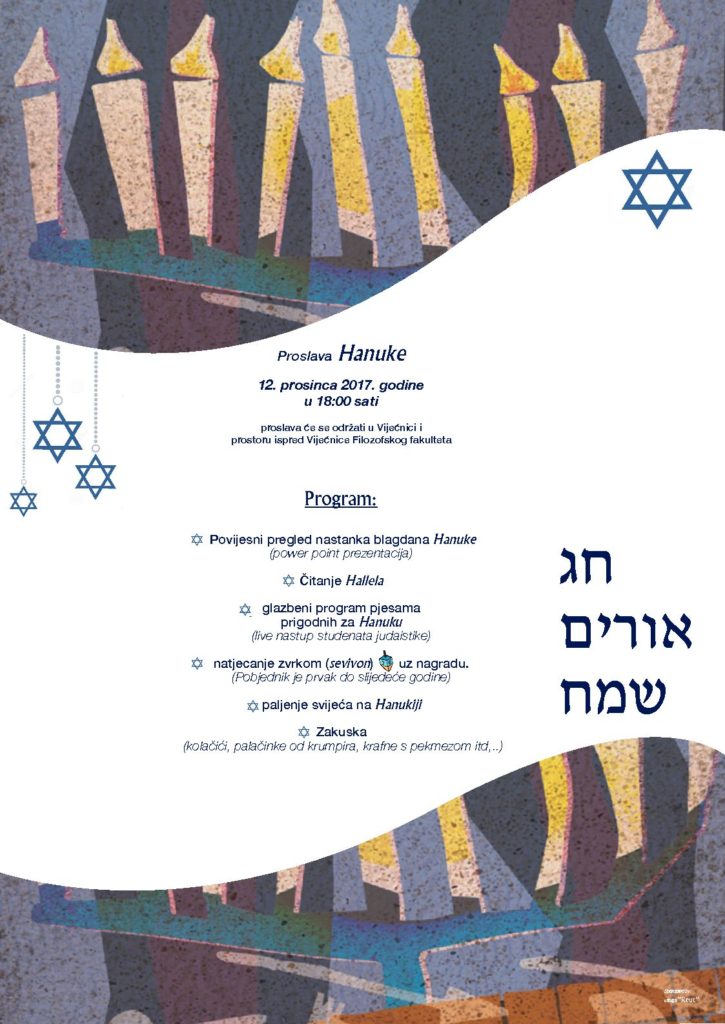Hrvatsko katoličko sveučilište
i
Odsjek za povijest Filozofskog fakulteta Sveučilišta u Splitu
imaju čast pozvati Vas na predstavljanje knjige
Nikola Čolak
HRVATSKI POMORSKI REGESTI
REGESTI MARITTIMI CROATI
III. svezak, Split 2017.
Petak, 17. studenog 2017. godine u 12 sati
Hrvatsko katoličko sveučilište, Dvorana „Blaženi Alojzije kard. Stepinac“, 3. kat, Ilica 242 u Zagrebu
O knjizi:
U prvom se svesku Hrvatskih pomorskih regesta nalazi 4890 unosa sakupljenih u Državnom arhivu u Veneciji i onom u Fanu, u drugom objavljenom također u Padovi, njih 6891 iz Državnog arhiva u Veneciji i onog u Ankoni, i konačno, u ovom trećem 3927 jedinica iz posljednja dva arhiva. Sva su tri sveska popraćena onomastičkim, toponomastičkim i analitičkim kazalima. Za ovaj je životni trud trebalo imati sve vrline povjesničara sakupljača: integritet, erudiciju i znanje, a prof. je Čolak pridodao i naglašenu ljubav prema Domovini. U njegovom djelu sadržan je čitav naš povijesni ideal vezan za Jadran, naše more, koje nas, kako je isticao, čini jedinim povijesnim pomorskim narodom u punom smislu u velikoj obitelji slavenske rase.
Jednom kada svi svesci budu objavljeni i digitalizirani imati ćemo pred očima čitavu našu pomorsku flotu 18. stoljeća: brodove, pomorce i robu i tada će se, prema velikom Fernandu Braudelu, ostvariti najveće savršenstvo koje nam povijest može pružiti da ćemo ponekad u trenucima nadahnuća, kao nekim bljeskom ući u navedeno vrijeme i prostor i pred očima gledati svaki naš brod i ljude u njihovoj svagdanjoj plovidbi na Jadranu.
Prof. Nikola Čolak je imao sreće da je u svojoj unuci Zrinki, našao obiteljskog člana nastavljača. Osim navedenih, oko 16.000 jedinica do sada tiskanih u tri sveska, u njegovom arhivu sada pohranjenom u Hrvatskom državnom arhivu u Zagrebu čeka još oko 30.000 regestiranih, ali nesređenih jedinica, te još oko 70.000 mikrofilmiranih i fotokopiranih izvornih dokumenata. To blago sada leži na leđima njegove unuke i na našoj savjesti. Jednom kada u cijelosti bude objavljeno Hrvatska će simbolično i stvarno postati snažna jadranska pomorska država. (Iz Pogovora prof. dr. sc. Josipa Vrandečića).
Svoj dolazak molimo potvrdite do 15. 11.2017. na e-mail: event@unicath.hr
Hrvatsko katoličko sveučilište
Ilica 242
HR-10000 Zagreb
Telefon: + 385 (0)1 370 66 59
Faks: + 385 (0)1 370 66 01
www.unicath.hr









